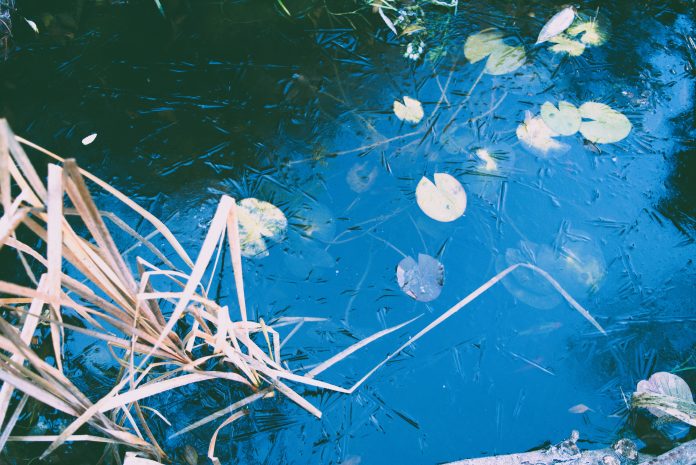Winter poses unique challenges for garden ponds in the UK, as freezing temperatures can threaten aquatic life and disrupt the delicate pond ecosystem. Keeping part of your pond ice free is critical to maintaining oxygen levels and preventing harmful gases from building up. Here’s how to care for your pond and methods to ensure it stays partially ice-free.
Why Keeping a Pond Ice-Free Matters
- Gas Exchange: A frozen pond traps harmful gases like carbon dioxide and methane produced by decaying plant matter, which can harm fish and other pond life.
- Oxygen Levels: Aquatic life requires oxygen year-round, and an ice-free patch allows for gas exchange with the atmosphere.
- Wildlife Support: Birds and other animals rely on ponds as a source of drinking water, even in winter.
Methods to Keep Your Pond Ice-Free
1. Floating Pond Heater or De-Icer
- How It Works: A pond heater or de-icer is an energy-efficient device designed to keep a small area of the pond free from ice.
- Advantages:
- Easy to install and use.
- Prevents complete freezing even during prolonged cold spells.
- Best For: Gardeners who want a low-maintenance, reliable solution.
2. Air Pump with Air Stone
- How It Works: An air pump circulates water and adds oxygen, while the moving water prevents ice from forming above the air stone.
- Advantages:
- Provides oxygen while keeping water moving.
- Suitable for ponds with fish.
- Placement Tip: Position the air stone just below the water’s surface, not at the bottom, to avoid disturbing warmer layers where fish may rest.
3. Floating Ball or Bundle of Sticks
- How It Works: Place a floating ball, such as a football or polystyrene ball, on the water’s surface. A bundle of sticks can also create gaps as ice forms around them.
- Advantages:
- Simple and inexpensive.
- Easy to remove and reposition.
- Best For: Small ponds or light frosts.
4. Hot Water Method
- How It Works: Place a saucepan of hot (not boiling) water on the ice until it melts a hole.
- Advantages:
- Quick and effective for small patches of ice.
- Caution:
- Avoid pouring hot water directly onto the pond, as this can shock aquatic life.
5. Solar-Powered Fountain
- How It Works: A solar fountain circulates water, preventing ice from forming in mild winter conditions.
- Advantages:
- Eco-friendly and cost-effective.
- Adds movement and aeration to the pond.
- Limitations:
- Less effective during prolonged freezing weather or in low light.
6. Small Low-Flow Pump
- How It Works: A pump positioned near the surface keeps water circulating, reducing the risk of ice formation.
- Advantages:
- Ensures aeration and water movement.
- Caution:
- Move the pump closer to the surface during winter to avoid disturbing the warmer water layers at the bottom.
7. Pond-Safe De-Icing Solution
- How It Works: Non-toxic de-icing products are available that help melt ice without harming pond life.
- Advantages:
- Effective for small-scale use.
- Best For: Emergency situations when other methods are unavailable.
Tips to Avoid Damaging Your Pond or Wildlife
- Never Smash the Ice: The shockwaves can harm fish and other aquatic life.
- Monitor Daily: Check your pond regularly during freezing conditions to ensure oxygen flow and the safety of wildlife.
- Plan Ahead: Install aeration devices or heaters before the first frost to prevent freezing.
Combining Methods for Best Results
For optimal winter pond care, combine methods: use an air pump or heater as your primary strategy, and keep a floating ball or similar item on hand for backup. This multi-pronged approach ensures your pond remains healthy, oxygenated, and ice-free throughout the season.
By maintaining an open patch of water, you’ll protect aquatic life, support wildlife, and ensure your pond thrives even in the harshest UK winters.




